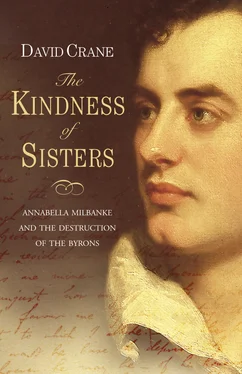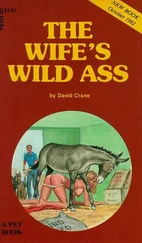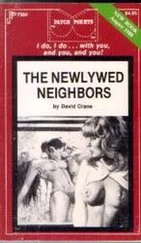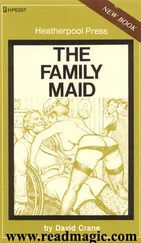No major English poet – except perhaps his hero, Alexander Pope – has made such creative capital out of a sense of alienation and grievance. It would take most of his life before the combination of exile and technical mastery matured these feelings into the great verse of Don Juan, but from his first callow satire the poet fed ruthlessly off his sense of difference, transmuting all the social and physical insecurities of childhood into the antinomian hauteur of the Byronic hero.
And the key word there is ‘Byronic’, because it was the glee with which Byron seized on the idea of hereditary doom that has made his name synonymous with the rebel outsider. The more unstable elements of his character probably owed as much to his mother’s Gordon blood as the paternal line, but it was exclusively through the history of crime and excess that was ‘Mad Jack’ Byron’s bequest to his son that a perverted Calvinism and the curse of deformity coalesced into a single, liberating myth of predestined damnation and revolt.
From the moment when, as a nine year old child, after the successive deaths of father, cousin, uncle and the ‘Wicked Lord’, he came into the title and first saw the ruins of his ancestral home near Nottingham, the shape of this rebellion was set. Newstead had originally been founded as an Augustinian priory in the reign of Henry II, and for all the changes it was still the great west front of the former church that gave the house its special character, a soaring, pinnacled and traceried façade behind which nothing stood, a piece of history preserved as theatre as wonderfully and spuriously evocative as everything else about the child’s bankrupt inheritance.
If it is impossible to imagine any nine-year old would be impervious to the romance of Newstead, no one but a Byron could have gloried so in its evidence of ancestral ruin. The priory had first come into the family in 1537 at the Dissolution of the Monasteries, but the ruthless transforming energies of Henrician England had long disappeared there, leaving house and lands mouldering in the same irreversible decay, the Byron name stained by murder, its deer slaughtered, woods felled, mining rights leased, rooms bare, its ruined east wing open to the skies.
Among the great English Romantics, Byron is unique in an almost complete absence of feel for his native landscape, and the cloistered world of Newstead quite literally set in stone a sense of physical alienation that had begun in his infancy. In his earliest verse there was a certain amount of Ossian-like posturing over the mountains of his childhood, but it was significantly the ruined priory that became what Pope’s Twickenham grotto and garden had been to another crippled outsider – the emotional and physical context of his creative life, the ‘other place’ of the imagination where he could reinvent himself in the successive alter-egos with which he would take on the world. ‘Newstead, fast falling, once resplendent dome’, Byron saluted it in one of his juvenile poems,
Religion’s shrine! Repentant HENRY’S pride!
Of warriors, monks, and dames the cloister’d tomb,
Whose pensive shades around thy ruins glide,
Hail to the pile! More honour’d in the fall
Than modern mansions in their pillar’d state;
Proudly majestic frowns thy vaulted hall,
Scowling defiance on the blasts of fate 17
In his adult life Newstead would be more a financial burden than a retreat, but its blend of history and loss retained a central place in his imagination. As a boy at Harrow and then Cambridge his sense of identity was wrapped up with the Byronic inheritance it embodied, but even after he had been compelled to sell it, the lessons of pride and vulnerability he had learned under its roof always remained with him,
It influenced everything in his life, his strengths and weaknesses, his politics and social manner – the awkward mix of arrogance and uncertainty – and above all the poetry that can often seem an emanation of childhood alienation. In the last great poem of his life he returned to Newstead with a freshness that underlines its importance to him, but if it is impossible to imagine the satirist of Don Juan without acknowledging the role Newstead played in his development it is as hard not to see its influnece in the lack of ‘place’ that is such a glaring weakness of his descriptive verse.
Nothing is ever as simple as that with Byron, of course, but his deliberate, ‘aristocratic’ obtuseness about the business of poetry that clouds the issue here was ultimately no more than a manifestation of the same insecurity. One only has to think of the ease with which Keats can move through an English landscape in darkness and identify every scent and sound to see what is missing from Byron’s verse, but in some adolescent way it would have seemed beneath him to look with that kind of particularity. ‘“Where is the green your friend the Laker talks such fustian about”, Trelawny recalled in an anecdote which – true or not – neatly brings Byron’s hostility to a world with which he was at odds and poetic sensibility into a single focus,
“Who ever”, asked Byron, “saw a green sky?”
Shelley was silent, knowing that if he replied, Byron would give vent to his spleen. So I said, “The sky in England is oftener green than blue.”
“Black, you mean,” rejoined Byron; and this discussion brought us to his door. 18
This insensitivity to his surroundings might seem an odd criticism of a poet whose evocation of the Greek landscape inspired a generation to fight and die for its freedom, but even then it was an idea of landscape rather than landscape itself that quickened his creativity, a sense of decline and loss that was as much imaginative projection as classical association.
It is no coincidence, either, that the one place that could genuinely vie with Greece in Byron’s mind was Venice, and again it was the palpable air of decay that clung to the Serenissima in her dotage that gripped his imagination. There are times in fact when this almost reflex melancholy can strike an oddly adolescent note in a writer of his wit and sophistication, and yet it is precisely this quality of arrested growth that links boy and man, and – critically – man and poet in a sense of alienation that found its first and deepest expression in Newstead.
The greatness of D.H. Lawrence’s novels, as F.R. Leavis remarked, was the proof they give that he lived, and the same could be said with even more validity of Byron’s poetry. In the wonderful satires of his last years he produced some of the finest comic poetry in the English language, and yet for all its brilliance and fun the ultimate fascination of his verse lies in the testament it offers to the courage and defiance with which Byron lived his life.
It was a defiance that darkened everything, from the wounded bitterness with which he responded to rejection, to the reckless and self-destructive exhibitionism with which he greeted success. There are other outsiders for whom success comes as a kind of belated membership card, but it was perhaps the defining hallmark of Byronic rebellion that triumph only propelled him from the defence onto the attack, driving him in an ascending trajectory from Newstead on an inevitable collision course with the community he despised.
This is not another biography of Byron – nor even of the notorious marriage that led to his final rupture with England – but an exploration of this timeless battle between the values he stood for and those of the community. There are any number of English authors around whose lives a similar argument might be built, but the unity of his life and art and the fame which surrounded Byron make him the one writer whose history defines in some permanent way what it means to be English.
Читать дальше










